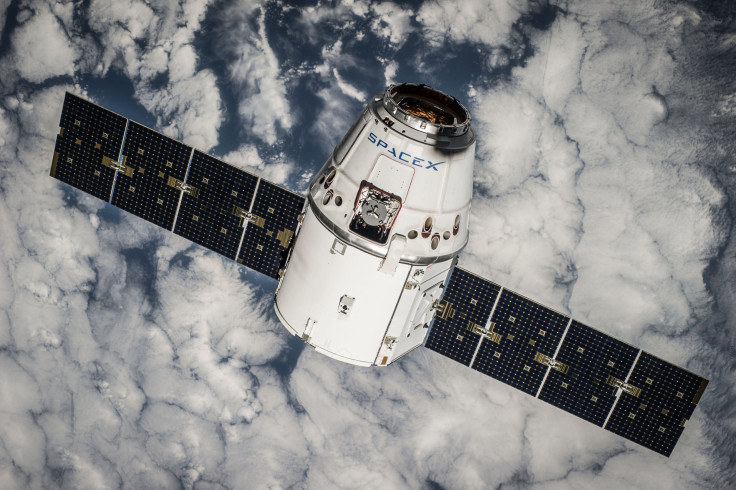SpaceX Launch Live Stream: Watch The NASA Commercial Resupply Mission, Rocket Landing Here

The rescheduled SpaceX launch to the International Space Station is scheduled for 4:47 a.m. EST on Saturday. The company's fifth commercial resupply mission for NASA was scrubbed Tuesday due to "actuator drift" on the Falcon 9 rocket's second-stage thrust vector control system, NASA reported. The Dragon spacecraft, carrying more than 5,000 pounds of cargo and scientific instruments, will launch from Launch Complex 40 at the Cape Canaveral Air Force Station in Florida.
Tuesday's launch was called just one minute and 21 seconds before liftoff. NASA and SpaceX settled on Saturday for the rescheduled launch, and there is currently an 80 percent chance of favorable weather conditions during the launch window.
The Dragon spacecraft will be carrying more than 2.5 tons of cargo and supplies to support 256 scientific investigations aboard the space station. The Cloud-Aerosol Transport System (CATS), which will be attached to the exterior of the space, will measure the distribution and location of aerosols -- solid particles found in the air -- that can affect the weather and climate, NASA reported. Student teams had to recreate their investigations, which were lost in the Orbital Sciences rocket explosion on Oct. 28, within two months in order to fly to the space station on Saturday. Other notable experiments launching to the space station on Saturday include a fruit fly lab and a flatworm regeneration experiment.
SpaceX will be attempting something unprecedented with Saturday's launch: a soft landing on an ocean platform. The company will attempt to land the first stage of the Falcon 9 rocket on a platform in the Atlantic Ocean after the Dragon spacecraft separates from the second stage of the rocket. During a Reddit Ask-Me-Anything on Tuesday, SpaceX CEO Elon Musk said he was only guessing at the chance of successfully landing a rocket on Earth. SpaceX wants to create a reusable first stage, containing nine Merlin engines and propellant tanks, which will reduce costs and make launches more efficient.
NASA's launch live stream begins at 3:30 a.m. EST, while SpaceX's coverage starts at 4 a.m. EST. Both broadcasts can be viewed below.
Broadcast live streaming video on Ustream© Copyright IBTimes 2025. All rights reserved.






















